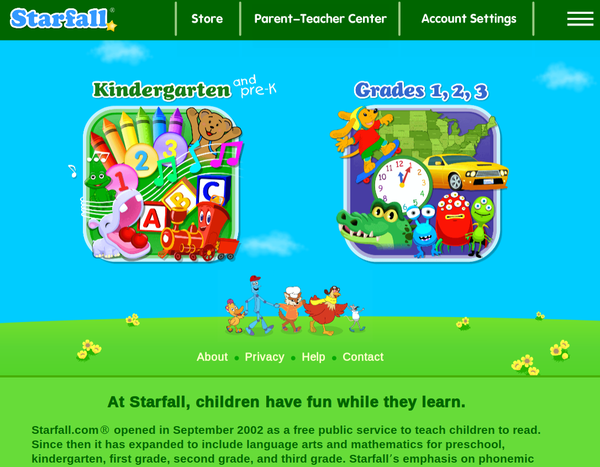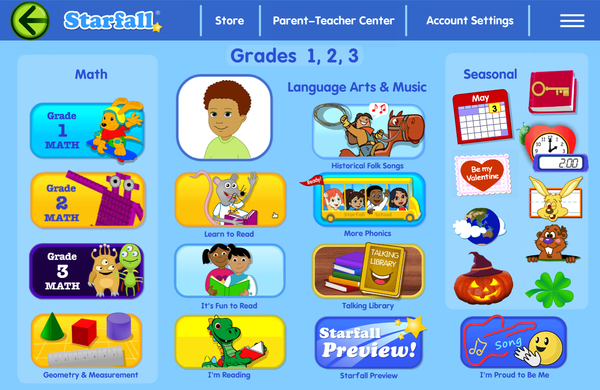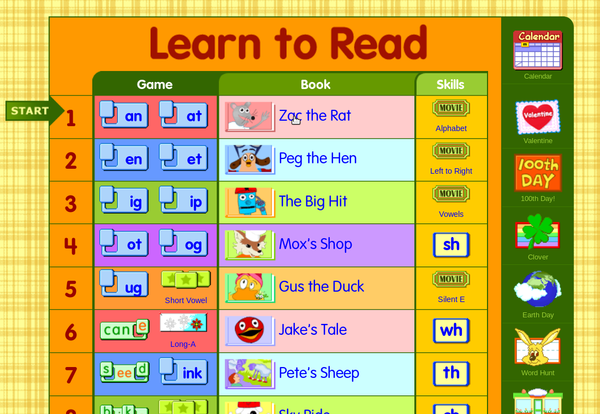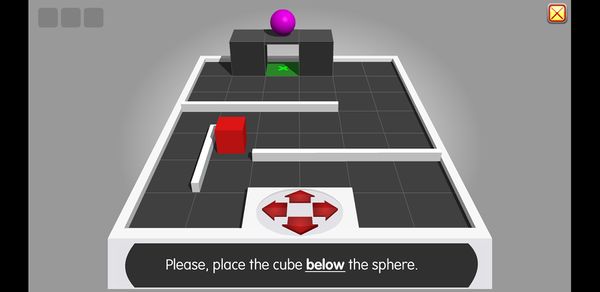Starfall: Difference between revisions
m (→Architecture) |
|||
| Line 34: | Line 34: | ||
[[image:starfall-2.png|600px|none|thumb|Starfall learn to read activity (screenshot May 2 2019)]] | [[image:starfall-2.png|600px|none|thumb|Starfall learn to read activity (screenshot May 2 2019)]] | ||
[[image:starfall-3. | [[image:starfall-3.jpg|600px|none|thumb|Starfall learn to read activity (screenshot mobile May 2 2019)]] | ||
[[image:starfall-4. | [[image:starfall-4.jpg|600px|none|thumb|Starfall learn to read activity (screenshot mobile May 2 2019)]] | ||
[[image:starfall-4. | [[image:starfall-4.jpg|600px|none|thumb|Starfall learn to read activity (screenshot mobile May 2 2019)]] | ||
== Research == | == Research == | ||
Revision as of 13:44, 3 May 2019
Introduction
Starfall is a partly free web-based integrated environment to teach basic reading and writing, math and arts, from age 3 to 8 (US prekindergarten, kindergarten to grade 3). Originally, the environment focused on reading skills.
According to it home page (May 2 2019), “Starfall.com® opened in September 2002 as a free public service to teach children to read. Since then it has expanded to include language arts and mathematics for preschool, kindergarten, first grade, second grade, and third grade. Starfall’s emphasis on phonemic awareness, systematic sequential phonics, and common sight words in conjunction with audiovisual interactivity has proven effective in teaching emergent readers. Starfall activities are research-based and align with Individual and Common Core State Standards in English language arts and mathematics.”
According to Wikipedia, “Starfall is a children's website that teaches basic English reading and writing skills. The main demographic is preschoolers, and kindergarteners. It teaches children how to read by using games and phonics. Methods used by the website are based on the research of G. Reid Lyon from the National Institutes of Health and Edward J. Kame'enui from the University of Oregon.[1] Established in 2002, the website is free to use and does not use advertising to generate revenue. The cost of running it is instead covered by money from Blue Mountain Arts, as well as the money made from its workbook printouts.”
Starfall is owned and managed by the Starfall Education Foundation, a publicly supported nonprofit organization. The core activities are free to use, using the mobile app and all contents requires a membership (e.g. $35 for parents, annually).
See also:
- ABCmouse, a fully commercial system
The system
According to the home page (retrieved May 2, 2019), “The program emphasizes exploration, play, and positive reinforcement—encouraging children to become confident and intrinsically motivated. Starfall is an educational alternative to other entertainment choices for children and is especially effective for special education, homeschooling, and English language development (ELD, ELL, ESL). It is widely used in schools that serve children with special needs and learning difficulties.”
Architecture
Starfall can be used either as web application or through mobile apps.
Organization
Various kinds of activities can be accessed from dashboards.
"learn to read" activities are arranged in a table with levels. For each level there are drag and dropt exerices, a book and extras such as movies.
Learning activity examples
Research
Starfall is supported by research according to its website FAQ: “Our curriculum, materials, website activities, and teacher resources are based on extensive research and consultation with national experts in education. The Starfall team continues to field-test methods, materials, and online content in schools across the United States.”. The page also points to an extensive bibliography used to inform the design.
Bibliography
Cited with footnotes
- ↑ Tsubata, Kate (2007-09-24), The Washington Time, https://www.washingtontimes.com/news/2007/sep/24/web-site-a-tool-to-teach-reading/. Archive: https://www.webcitation.org/5k7WdLmSB





